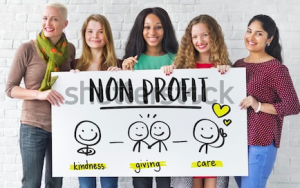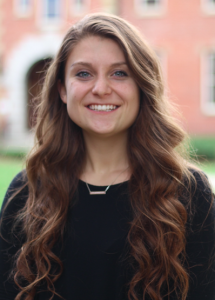Not for PRofit [National Conference 2018 Session Recap]

Session: Not for PRofit
Presenter: Michele Glaze, Former Chief Development Officer for the Boys & Girls Clubs of the Austin Area and current Communications & Community Affairs for Samsung
Recap: “There are around 1.3 million nonprofits,” Michele Glaze opens her lecture with a striking statistic. “In Austin, there are 4,000 locally based nonprofits.”
Michelle Glaze is a University of Texas at Austin graduate with years of experience successfully blending passion and advocacy into her diverse PR background in agency, corporate and nonprofit communications. During her time in the corporate world, Glaze was able to combine passion and business by managing Dell’s corporate foundation, advocating for the first LGBTQ advertisement and spearheading a number of other social advocacy projects. Most recently, Glaze’s biggest adventure was heading a team to provide a brighter future for Austin’s youth as the Chief Development Officer for the Boys & Girls Clubs of the Austin Area.
Throughout her session, Glaze highlighted that a nonprofit is just as much a business as a corporate, product-driven company. During her time at the Boys & Girls Club, Glaze managed a full team of communications and business development leaders, from grant officers to marketing managers. She stressed that the administrative structure of most nonprofits mirrors the largest corporations, with a C-suite and various teams serving underneath. The difference, nonprofits allow for more creative and collaborative freedom. Glaze compared the approval process for her communications and development ideas between Dell and the Boys & Girls Club by explaining that she could champion her team, select her ideas and act quickly. Meanwhile, at Dell, she needed more time for approval and review of stricter standards. With more stringent regulations on decision-making, Glaze said she has less budget to work with for her marketing ideas in the corporate world than when she worked at the Boys & Girls Club.
Despite the misconception that the nonprofit world does not pay, Glaze informed her audience that the nonprofit world generates $634 billion in wages and salaries each year. The starting salary for an entry-level employee mirrors the typical corporate entry-level salary and employees quickly climb the leadership and pay scale ladder as they increase in seniority. Nonprofits allow for employees to expose themselves to all aspects of a business, as the structure is more focused on the passions of the team and collaboration of ideas. While those spending years in corporate become specialists in their area of work, nonprofit employees can learn something new every day and continue to grow as the organizations need change.
Throughout Glaze’s presentation, she made an aspect of nonprofit PR very clear; the passion of the organizations’ team. Employees of nonprofits can turn something they are passionate about and turn it into their career. Each member of Glaze’s team at the Boys & Girls Club personally raised money for the organization and believed in its values and mission. The work environment created lasting relationships and gave the team a reason to put their best effort forward for a cause they believed in.
“At the Boys & Girls Club, we believe great futures start here.”
Takeaways:
- Nonprofit skill-sets can translate to careers in the corporate sector with corporate social responsibility, company foundations and community engagement.
- A nonprofit organization is still a business; it just happens to have a purpose or mission for driving profits every day. A good nonprofit invests funds back into the efforts they aim to support.
- Nonprofits allow leaders to have more freedom over team projects and responsibilities than the corporate world.
- Working in nonprofits does not mean you will be paid less than the corporate world, the longer you stay with an organization, the faster you will climb in salary and rank.
- Nonprofits allow for more collaboration and sharing of responsibility across teams, allowing employees the chance to grow their skills no matter how long they stay with the organization.
_____
Emily Zekonis is a third-year Strategic Communications/Public Relations student at West Virginia University. She currently serves as the Treasurer/Fundraising Chair of WVU PRSSA and Co-Conference Coordinator for West Virginia University’s 2019 Regional Conference. Emily will be graduating in spring 2020 to continue her education at WVU with an M.S. in Integrated Marketing Communications. Follow Emily on Twitter @EmilyZekonis or LinkedIn.

